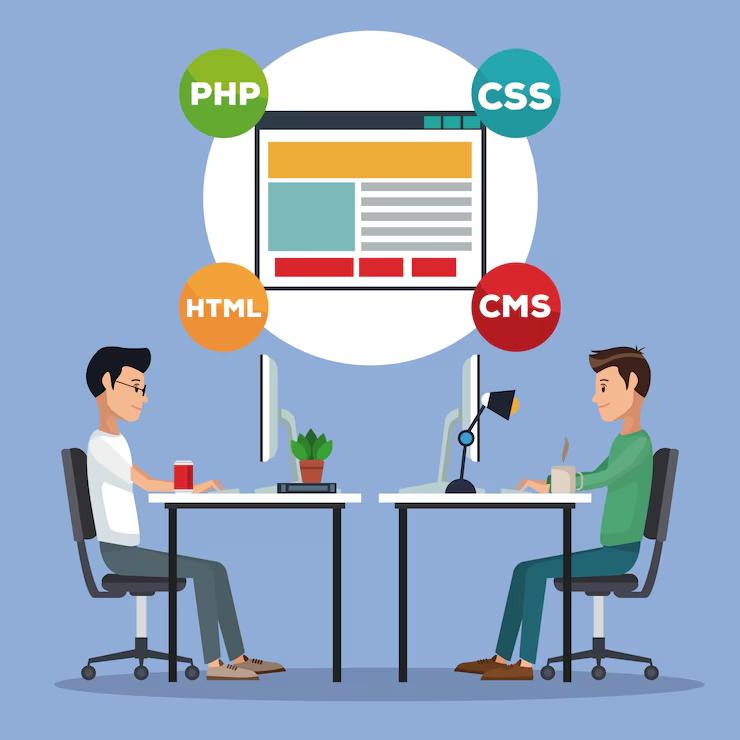Creating a successful website begins with choosing the right professional for the job. When you’re using WordPress, hiring a developer with the right skills and mindset can save you time, money, and frustration. Whether you’re building a business site, a blog, or an eCommerce store, having the right person in charge makes all the difference.
This blog shows how to hire a WordPress developer effectively and what steps you should take before, during, and after the hiring process.
Why Hire a WordPress Developer?
When you hire wordPress developers, you gain more control over your site. Instead of struggling with themes or plugins that don’t fit, a developer builds exactly what you need. They write custom code, adjust layouts, and fix problems that plugins can’t solve. If you want your website to reflect your brand and function properly on all devices, you’ll need more than a drag-and-drop solution.
Types of WordPress Developers
Before you start looking, know what kind of developer you need. Here are three main types:
1. Front-End Developer
They handle design and user interface. If you want to change how your site looks or improve the mobile version, this is the right person.
2. Back-End Developer
They work on the server, database, and site functions. If your website needs custom features or works with external systems, hire someone with strong PHP and WordPress core experience.
3. Full-Stack Developer
They can handle both front-end and back-end. If you’re building a site from scratch or need one person to manage everything, a full-stack developer fits best.
Define Your Project Requirements
Before posting a job or contacting candidates, write down what your website needs. Include:
- The purpose of your site (e.g., blog, business page, online store)
- Features you want (e.g., contact form, booking system, payment gateway)
- Your preferred timeline
- Your budget range
- Whether you need ongoing support or just one-time help
Clear requirements save time and help you attract the right developers.
Where to Find WordPress Developers
Many platforms can connect you with qualified developers. Here are some top sources:
1. Freelance Platforms
Sites like Upwork, Freelancer, and Fiverr offer a wide range of talent. You can post your job, review applicants, and choose someone based on ratings and previous work.
2. WordPress Job Boards
Look at the official WordPress Jobs board or Codeable, which specializes in vetted WordPress experts.
3. Developer Communities
Reddit, Stack Overflow, and GitHub host large communities where developers share projects and discuss code. You can message contributors who have experience with similar work.
4. Referrals
Ask other business owners, designers, or marketers if they know any good WordPress developers. Trusted recommendations often lead to better results.
How to Screen and Shortlist Candidates
Once you receive applications, take these steps to filter the best ones:
1. Review Portfolios
Ask for recent websites they’ve built. Visit the sites and check for design quality, page speed, mobile responsiveness, and overall user experience.
2. Check Technical Skills
Ask them about themes, child themes, plugin development, and how they handle site security. They should have solid knowledge of HTML, CSS, JavaScript, and PHP.
3. Ask About Their Work Process
Learn how they manage projects. Do they use project management tools? How often do they communicate? What happens if the scope changes?
4. Evaluate Communication
You need someone who answers questions clearly and responds quickly. Poor communication can delay the project and lead to misunderstandings.
Questions to Ask Before Hiring
Prepare a short list of questions to ask during the interview or trial phase:
- Can you show WordPress projects you’ve worked on recently?
- Have you created custom themes or plugins?
- How do you handle site backups and security?
- What’s your availability for this project?
- How do you handle bugs or post-launch fixes?
- Do you charge hourly or per project?
Their answers will help you see if they fit your budget, timeline, and expectations.
Check Reviews and Testimonials
If you’re hiring through a platform, check their reviews. Look for consistent praise for reliability, quality, and meeting deadlines. You can also ask past clients directly how the project went. Developers with a history of satisfied clients are more likely to deliver good results.
Set Clear Terms Before Starting
Once you’ve selected someone, define the terms of the project:
- Payment structure (upfront, milestone-based, final payment)
- Delivery deadlines
- Communication method and frequency
- Ownership of code and designs
- Support after launch
Put everything in writing, even if you’re working with a freelancer. A simple contract helps protect both sides.
Work Together Effectively
To get the best results, stay involved during the development. Share feedback early and often. Test the features they build, and don’t wait until the end to check everything.
Use collaboration tools like Trello, Slack, or Google Docs to track tasks and keep communication smooth. Respect their time, but be available when they need input.
Budget Tips for Hiring Smart
WordPress development costs vary widely based on location, skills, and complexity. Here are tips to manage your budget:
- Don’t pick the cheapest option unless they prove quality work
- Ask for fixed-price quotes for well-defined tasks
- Start with a small test project to assess their work
- Avoid long-term contracts until you’ve seen results
Spending a bit more on the right person can save you from costly revisions later.
Red Flags to Avoid
Watch out for these warning signs:
- Vague answers or dodging technical questions
- Overpromising unrealistic timelines
- Poor grammar or slow replies
- No portfolio or fake project links
- Asking for full payment upfront
Stay cautious and choose someone who shows both skill and professionalism.
Conclusion
Hiring a WordPress developer can turn your vision into a powerful, functioning website. Take your time, define what you want, and choose a developer who fits your goals and communication style. A smart hiring decision not only helps you launch your site on time but also sets the stage for long-term growth.





